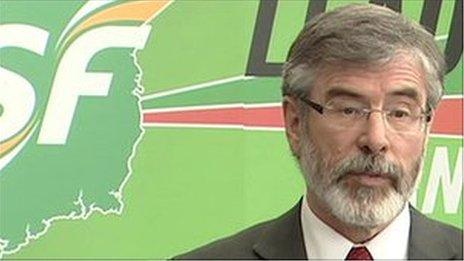Boston tapes: Q&A on secret Troubles confessions
- Published
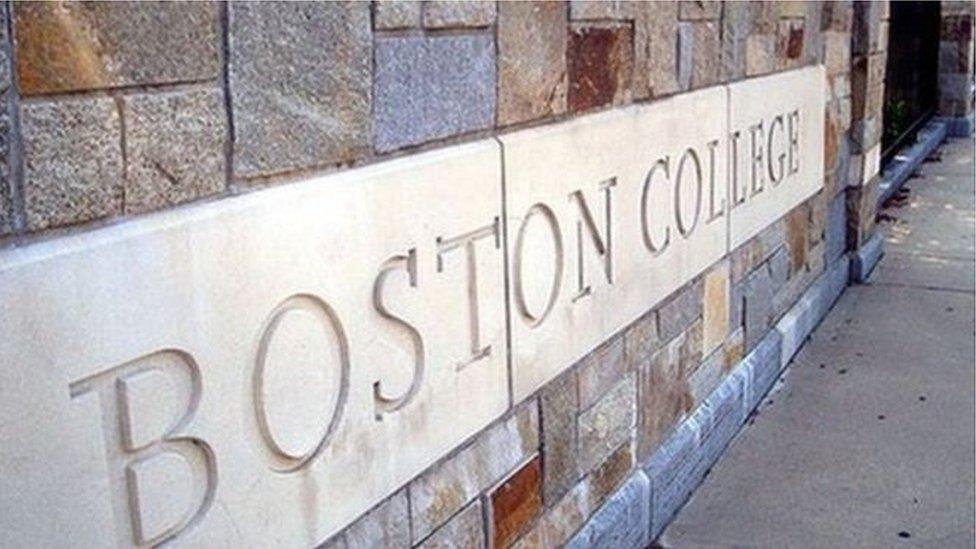
Boston College's Belfast Project was an attempt to create an "oral history" of the Troubles
The Boston tapes are secret recordings in which ex-paramilitaries talk about their role during the decades of violence in Northern Ireland known as the Troubles.
The tapes contain interviews with both republican and loyalist paramilitaries during which some admit involvement in various attacks, including murders.
The recordings were made on behalf of the US university, Boston College, as part of an academic project to create an "oral history" of the Troubles.
But the project was highly controversial and police in Northern Ireland later gained access to the tapes for use as evidence in ongoing murder inquiries.
Those police investigations included one the IRA's most notorious murders - the 1972 killing of mother-of-10 Jean McConville.
On Thursday, veteran republican Ivor Bell was cleared of soliciting the widow's murder.
The case against the 82-year-old was based on alleged admissions in the Boston tapes, which were played in public for the first time during the legal action.
The judge ruled the tapes were unreliable and could not be used as evidence against Mr Bell.
Why would former paramilitaries confess to crimes on tape?
Boston College launched its Belfast Project in 2001, three years after the signing of the Good Friday Agreement, an international peace accord which effectively marked an end to the Troubles.
By that stage, hundreds of paramilitary prisoners had already been granted early release from jail under the terms of the 1998 agreement.
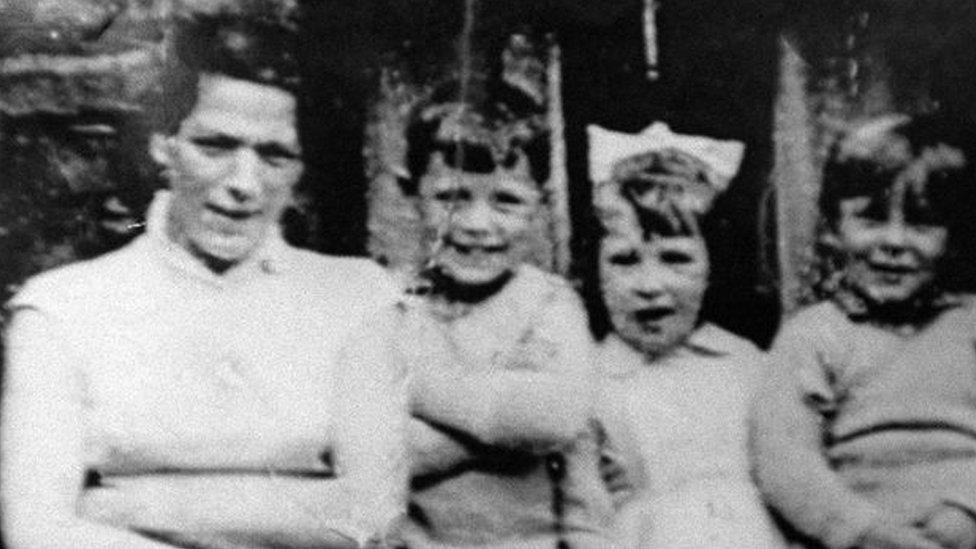
Ten children were orphaned when the IRA murdered Jean McConville in 1972
Historians saw an opportunity to obtain eyewitness accounts of the Troubles from some high-profile figures who had been directly involved in the 30-year conflict.
The deal was that the former paramilitaries would tell their stories in secret, on the understanding that the recordings and transcripts would only be made public after their deaths.
Boston College tried keep its promise, but the Police Service of Northern Ireland (PSNI) launched an international court battle to force academics to hand over the material.
Who made the Boston College recordings?
The oral history project was directed by the Irish writer and journalist Ed Moloney, with the interviews carried out by two researchers.
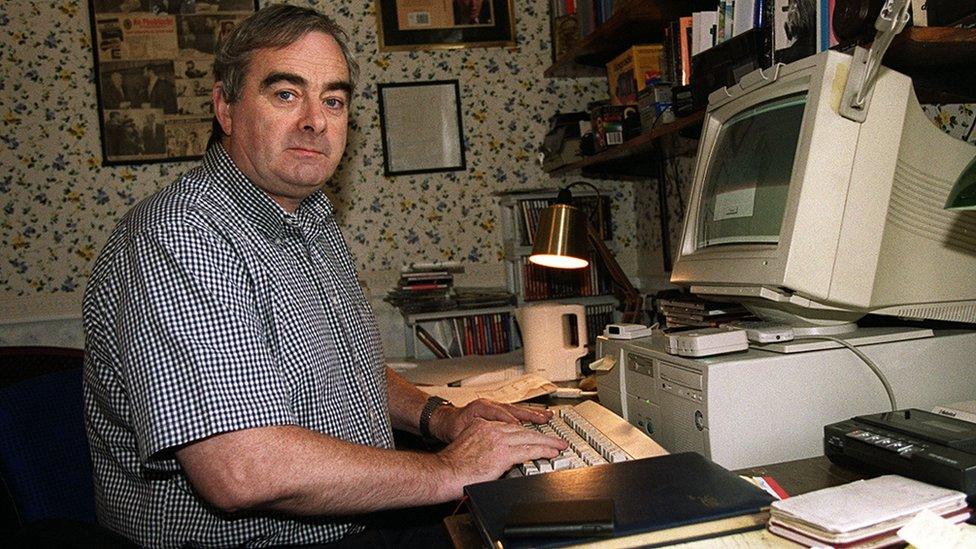
Ed Moloney began work on the project shortly after the 1998 peace deal
Loyalists' testimonies were recorded by Wilson McArthur, while republicans were interviewed by the former IRA prisoner Anthony McIntyre.
Recordings of these interviews were held in a library at Boston College and became known as the Boston tapes.
Among the participants were the former Progressive Unionist Party leader David Ervine, former IRA commander Brendan Hughes and former IRA member Dolours Price.
All three have since died.

The late Brendan Hughes was a senior IRA member in Belfast
Brendan Hughes said he had organised Bloody Friday, the day in 1972 on which the IRA detonated more than 19 car bombs in Belfast in the space of an hour.
Nine people were killed and 130 were injured. Images of police officers shovelling the mutilated bodies of the victims into bags are some of the most enduring of the Troubles.
Hughes also spoke of his former close friend, Gerry Adams, claiming the former Sinn Féin leader was once the overall commander of the IRA's Belfast brigade.
He also claimed Mr Adams had controlled his own squad within the IRA, known by the organisation as "the Unknowns".
This, according to Hughes, was the group responsible for the deaths of the so-called Disappeared - victims who were kidnapped, murdered and secretly buried by republican paramilitaries.
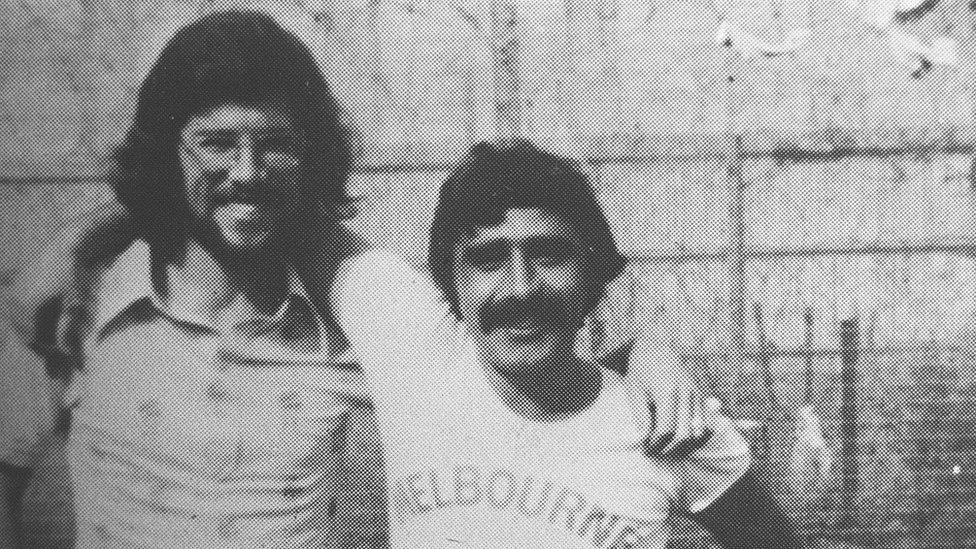
Gerry Adams was imprisoned with Brendan Hughes in the 1970s
Mr Adams has strenuously denied the claims and has pointed out that he and Brendan Hughes came to differ on the political route that Sinn Féin was taking.
In the latter years of his life, Hughes had become an ardent critic of his former friend.
How were the tapes used in the Jean McConville murder investigation?
In 2010, former IRA bomber Dolours Price gave an interview to a newspaper journalist, in which she admitted she had taken part in the secretive Boston College project.
The Belfast woman had been a member of the IRA gang that bombed London's Old Bailey in 1973, injuring about 200 people.
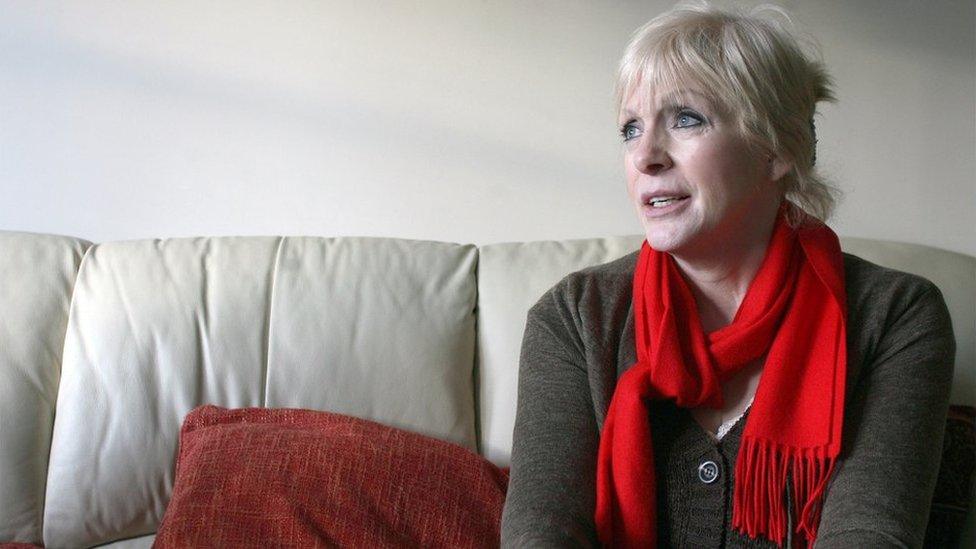
Dolours Price sparked a legal battle over secret interviews she gave about her time in the IRA
In the newspaper interview, Price claimed to have been the person who drove IRA murder victim Jean McConville to the place where she was shot dead.
In 2011, the Police Service of Northern Ireland (PSNI) launched a legal bid to force Boston College to hand over the transcripts of Price's interview as part of their investigation into Mrs McConville's murder.
Price died at her home in Dublin in January 2013 after accidentally taking a toxic mix of prescribed medications.
Six months after her death, transcripts of her Boston College interviews were handed over to the PSNI.
Who was Jean McConville?
Mrs McConville was a 37-year-old widow who was bringing up 10 children alone in a tower block when she was kidnapped and killed by the IRA in December 1972.
She was shot and buried in a secret grave, becoming one of the Disappeared.
Mrs McConville's fate was a mystery for more than 30 years, until her remains were found on a County Louth beach in 2003.
Has anyone been prosecuted on the basis of the Boston tapes?
Following a lengthy court battle, the PSNI was eventually given transcripts of interviews by Brendan Hughes and Dolours Price.
Project director Ed Moloney had argued that Price did not make any claims about the Disappeared during her Boston College interviews, but it later emerged the PSNI had obtained access to another interview conducted with Price after the Belfast Project was completed.
In 2014, the PSNI made two high-profile arrests in the Jean McConville murder inquiry, separately detaining veteran republican Ivor Bell and the then Sinn Féin leader, Gerry Adams.
For his part, Mr Adams said he had nothing to fear from any disclosure and denied all of the accusations levelled at him.
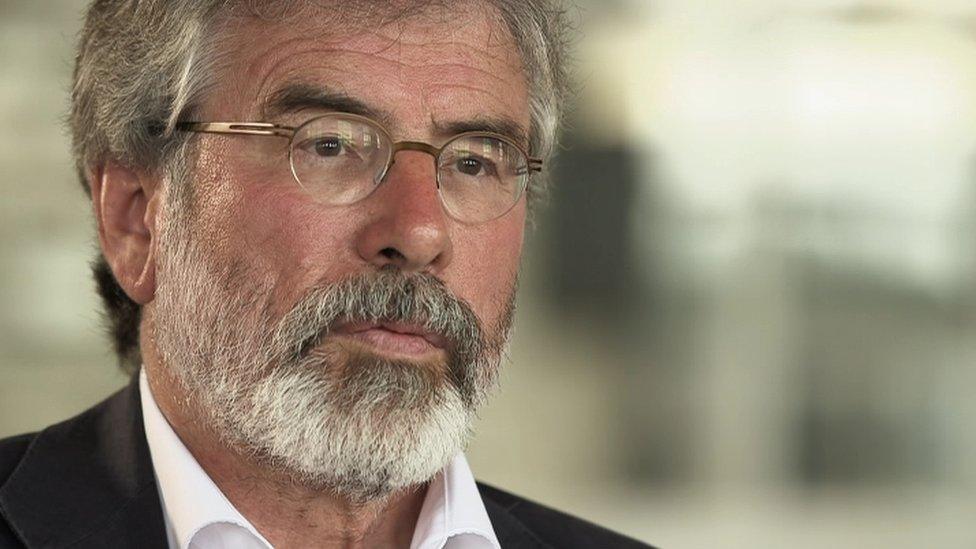
Gerry Adams denied any involvement in Jean McConville's murder
During four days of questioning, the Boston tapes formed part of the material that detectives put to him about his alleged role in Mrs McConville's death.
Mr Adams, who was released without charge, criticised the PSNI for "political policing" and said the Boston tapes had "formed the mainstay for my arrest".
West Belfast republican Ivor Bell did however face prosecution, and was charged with encouraging persons to murder Mrs McConville and endeavouring to persuade persons to murder her.
In 2016, a Belfast court was told the pensioner was suffering from dementia and could not participate fully in the legal process.
In December 2018, a judge ruled Mr Bell was unfit to stand trial and said a non-criminal procedure - known as a trial of the facts - would take place before a jury in 2019.
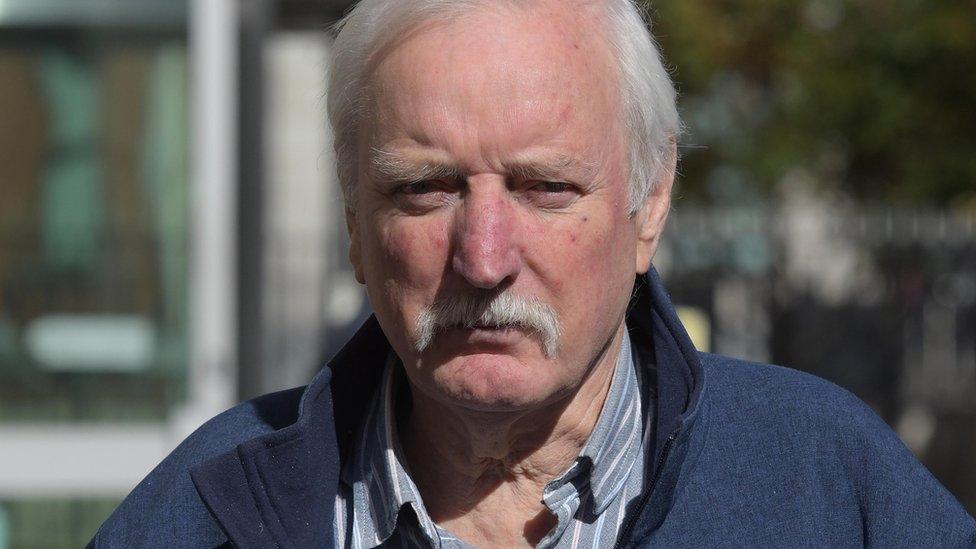
Ivor Bell was in his late 70s when he was first arrested over the McConville case
Mr Bell, who is now 82, was cleared of soliciting the widow's murder on 17 October 2019.
During the case, the court heard an interview in the Boston tapes that Mr Bell had allegedly given to a university researcher.
The interviewee claimed Gerry Adams had recommended Mrs McConville's murder and disappearance.
Mr Adams was called as a witness and strenuously denied involvement in the murder.
The judge ruled that while there was "overwhelming" evidence the recording was of Mr Bell, the tapes were unreliable, and could not be used as evidence.
Have the tapes been used to prosecute loyalist killers?
In 2015, the PSNI won the legal right to listen to Boston College recordings of interviews with the loyalist Winston "Winkie" Rea.
The following year, Mr Rea was charged with the murders of two Catholic workmen and the attempted murders of two other men.
In total, he faced 19 charges relating to offences dating back to 1973. He denies all the charges.

Winston 'Winkie' Rea was brought to court in a wheelchair
The then 65-year-old was suffering from ill health and was brought to court in a wheelchair.
In January, a judge suggested that he may be able to give evidence from home at his trial, which is currently listed for February 2020, having been delayed due to his illness.
Where are the Boston tapes now?
Shortly after Gerry Adams' arrest in 2014, Boston College said it would return interviews to former paramilitaries who contributed.
But the project's lead researcher, former IRA man Anthony McIntyre, also fought a lengthy legal battle to prevent the PSNI getting hold of his personal interviews.
Originally from Belfast, McIntyre was jailed for murder in 1977, but has since become a writer and academic.
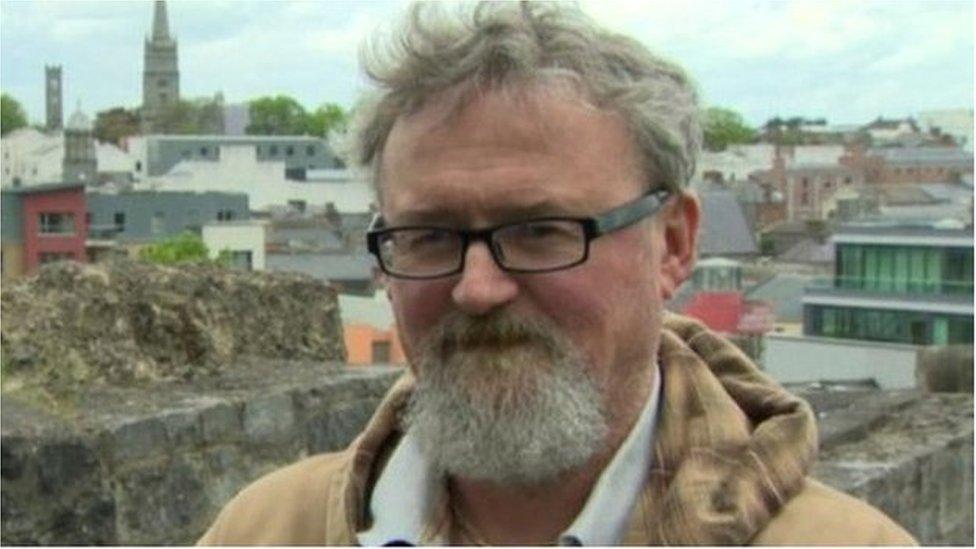
Former IRA man Anthony McIntyre was a lead researcher on the oral history project
During his work with Boston College, he gave a personal testimony outlining his own involvement in the IRA during the Troubles.
After the PSNI successfully gained access to taped interviews given by Dolours Price and loyalist Winston Rea, the British government served Boston College with a subpoena seeking copies of Mr McIntyre's interviews.
He tried to stop the process by seeking a judicial review, but the High Court dismissed his challenge in October 2018.
The former IRA prisoner has been granted leave to take his case to the Supreme Court.
- Published19 September 2016
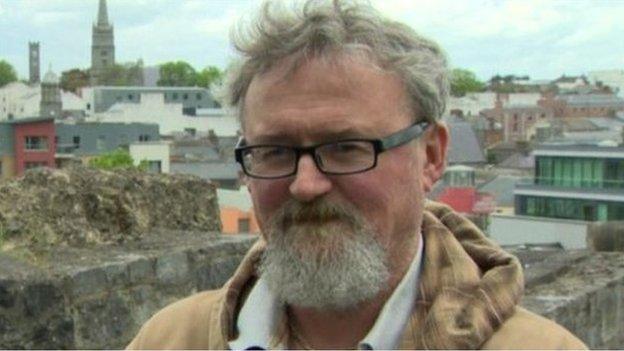
- Published6 May 2014
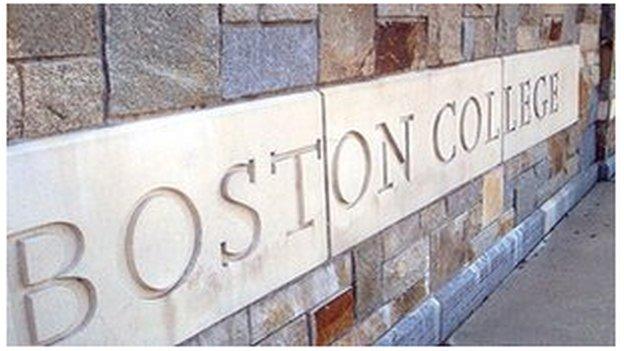
- Published14 October 2019
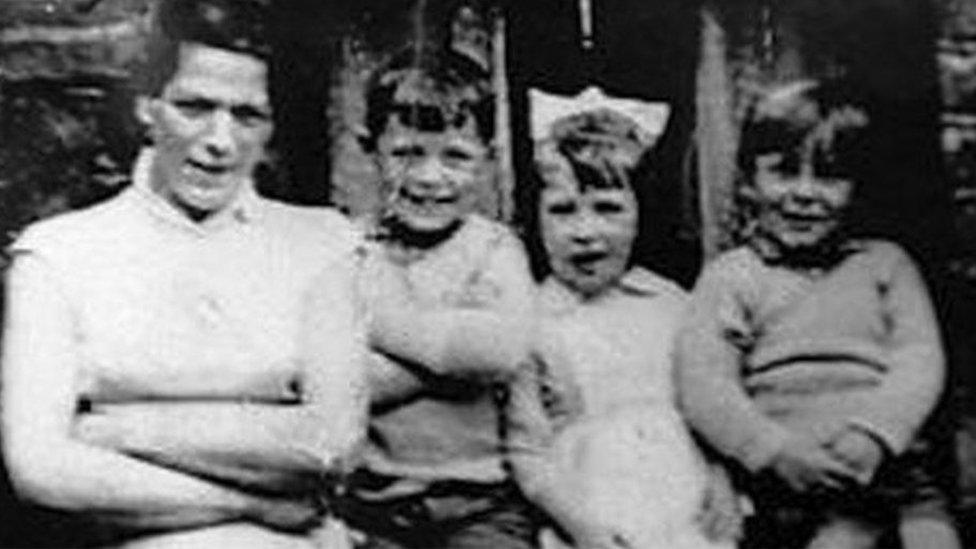
- Published24 January 2012
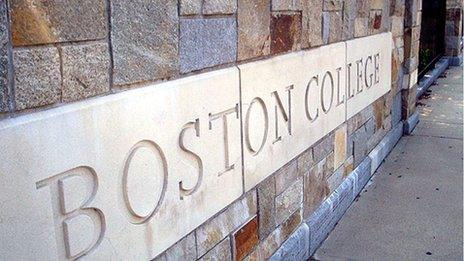
- Published22 January 2012
